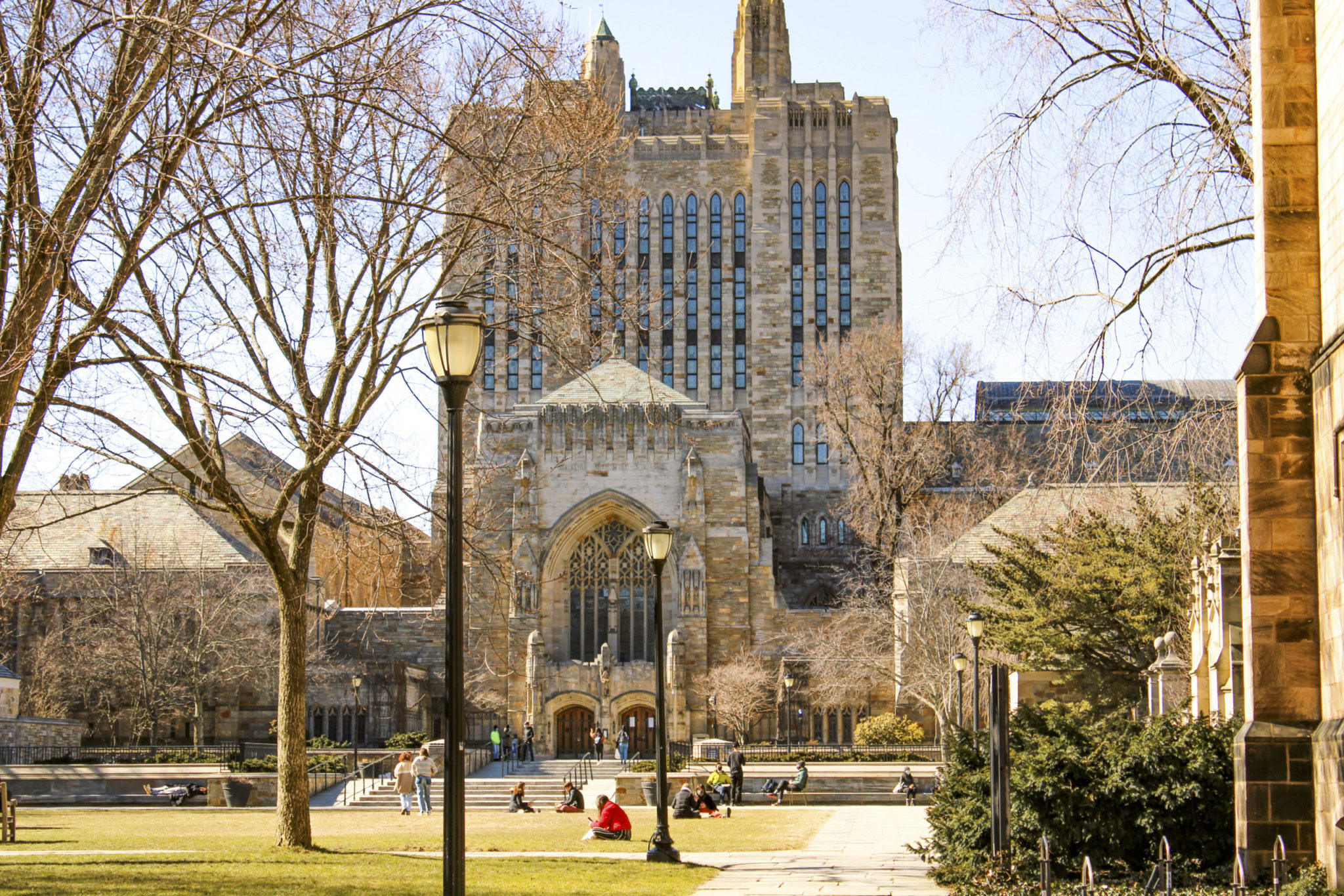Writer Yi-Ling Liu ’17 speaks to Yale about Chinese internet culture
In a Poynter Fellowship in Journalism event on Monday, Liu spoke about Chinese internet and its culture in an event titled “Metaphors of Online Life in China.”

Jessie Cheung, Staff Photographer
China-based writer Yi-Ling Liu ’17 walked a virtual audience through recent eras of internet access and culture in China in an event on Monday morning. The event looked at metaphors and representations surrounding the internet in order to improve understanding of online life in the country.
The Zoom event, titled “Metaphors of Online Life in China,” was co-sponsored by the Yale Information Society Project and the Paul Tsai China Center, in conjunction with the Poynter Fellowship in Journalism. Liu spoke about Chinese internet culture and its evolution alongside the development of China’s increasingly regulated internet. Liu is a New America Fellow, a recipient of the Matthew Power Literary Reporting Award, an Overseas Press Club Foundation Scholar, a visiting scholar at the NYU Carter Journalism Institute and she is writing a narrative nonfiction book about contemporary China, to be published by Penguin Press. She also spent time developing screenplays for Sony Pictures and designing GAKKO summer camps.
“Any kind of direction that China takes, the internet will follow,” Liu said during the event.
Liu’s writings abouts Chinese society, technology and culture have been published in The New York Times Magazine, Harper’s, Wired and The New Yorker. Her work covers a range of topics including science fiction novelists, rural livestreamers and gay dating apps.
At the event, Liu spoke about three main eras on the Chinese internet. First, she explained the “Ping-Pong Era,” during which journalists would “test the limits” of their craft while remaining entirely within the bounds of the law.
Then, she explained, came the “Spiritual Garden Era.” During this time, as the government increasingly restricted access to non-Chinese web services, Chinese citizens came up with new innovative replacements.
Lastly came the “Wall Nation” Era, which Liu defined as Chinese officials having control over the internet and “shaping the very ideology of the online sphere.”
“These things move in cycles and seasons, and in some cases, what happens online may be downstream of what happens in politics or the economy,” event moderator Nicholas Frisch GRD ’22 said during the talk. “I remember seeing slogans on the streets of Beijing being pushed out on banners and billboards that would talk about internet sovereignty. And that actually started trickling out before a lot of the really strong assertions of Chinese companies’ market share against foreign companies and then the Chinese government asserting control over the private sector.”
Liu also discussed the various internet cultural phenomena that came with these eras, from Xiaomi founder Lei Jun’s emulation of Steve Jobs in the Spiritual Garden Era to the Chinese ban on hip-hop in 2018 and the concept of “involution” in the Wall Nation Era.
“In this new definition, involution is used to explain why modern society, specifically modern China, is stagnating because of too much competition,” Liu said. “And so young people, for example, feel like they’re trapped in this kind of doomed and narrow path to validate success, where they have to earn top grades, get into a good university, get a well paying job, buy an apartment and they feel like this is both impossible and also meaningless.”
With both the fragility of U.S.-China relations and the COVID-19 pandemic, important Chinese perspectives can be particularly difficult to find, according to Karman Lucero, an associate research scholar at the Paul Tsai China Center.
Lucero, whose work surrounds Chinese regulation of technology and its implications, told the News she found the event useful, and said it helped to provide an important perspective. She added that these concepts are applicable to everyone, regardless of their involvement with or interest in China.
“It’s growingly salient to people’s everyday lives because, as was discussed at the event, there’s a certain universality in internet culture, and a lot of the words and fears that are being expressed and developed in the Chinese cyber ecosystem, are very relatable in the U.S. and elsewhere,” Lucero said. “And so I think it’s valuable to get that sense of perspective.”
The Paul Tsai China Center focuses on domestic reform with China and U.S.-China relations.







